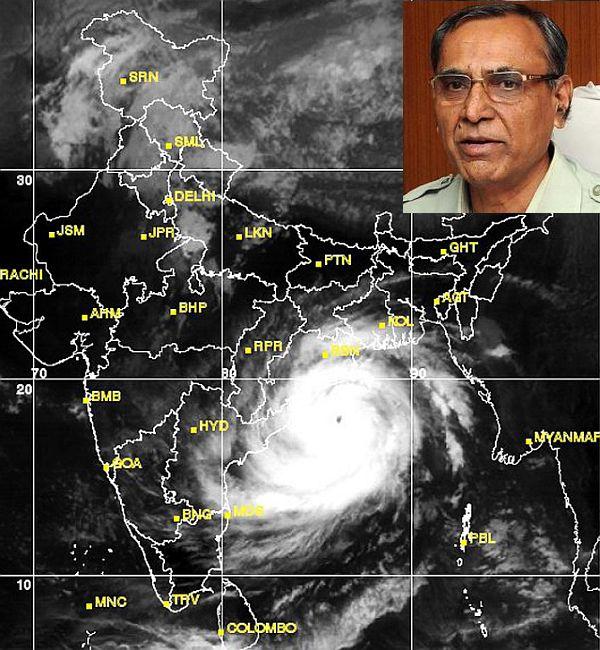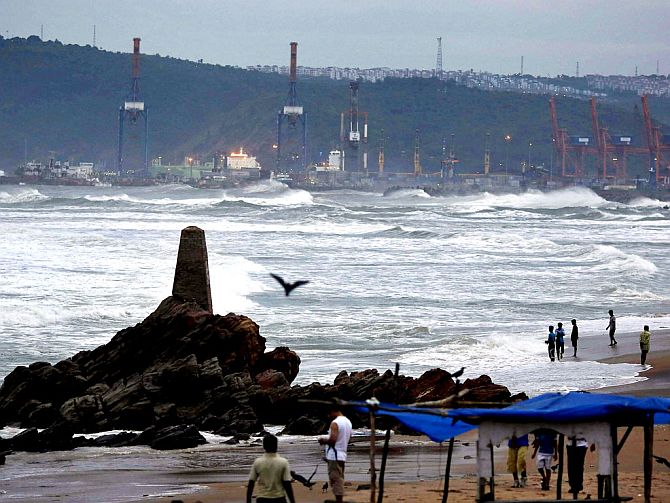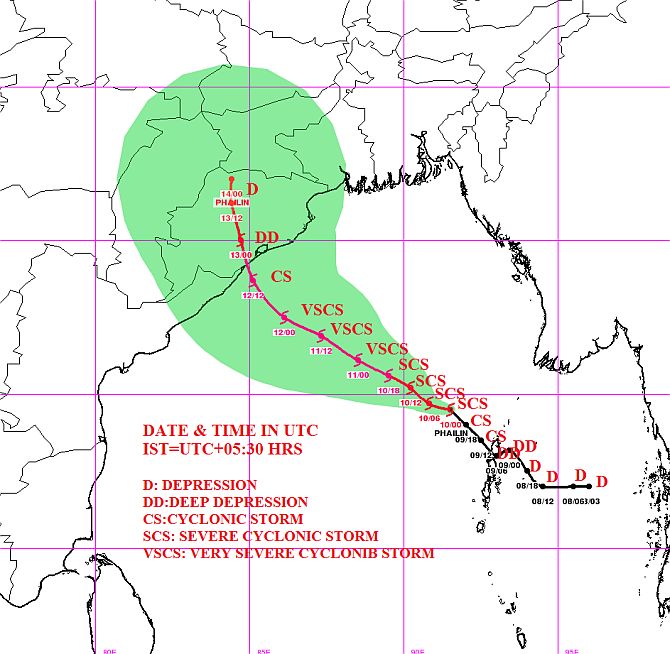
The Indian Meteorological Department on Sunday stood vindicated over its forecast that Phailin will not be a 'super cyclone' as predicted by some international agencies and said its assessment was "more or less" accurate.
"Being a national meteorological department we cannot predict the way other agencies do as this will lead to a panic like situation. We stuck to our stand and told the media what we have been saying since the start. Our predictions proved to be more or less accurate," IMD chief L S Rathore told media persons in New Delhi.
Many international agencies including the US Navy Joint Typhoon Warning Centre and Britain's Met Office had termed Phailin as a "super cyclone" and repeatedly warned it would be immense.
A noted American meteorologist Eric Holthaus had on Friday also said that the IMD was underestimating the potential winds and surges of Phailin and forecast it will be a Category 5 cyclone (the most powerful).
...

IMD, which is often questioned for the credibility of its estimates, had predicted that Phailin, which hit the country's east coast yesterday, will be a 'very severe cyclone' and refused to categorise it as a 'super cyclone'.
It had consistently maintained that the storm's sustained windspeeds will be around 220 kmh, one category below a "super cyclone".
Asked whether the IMD stood vindicated over its forecast for Phailin, Rathore told the assembled media it is for them to judge.
"They have been issuing over-warnings, we have been contradicting them," Rathore said, adding, "That is all that I want to say."
He, however, said that as a scientist there is always a difference of opinion.
"As a scientist, we have our own opinion and we stuck to that. We told them that is what is required as a national weather service -- to keep people informed with the reality without being influenced by over-warning," Rathore said.
He patted his department's back in "accurately" predicting the cyclonic system, asserting the forecast has been "quite correct".
...

"We made correct forecast of the intensity and the rainfall. The time and place of landfall was also correct," Rathore said, showing a map of the predicted and actual path of the cyclonic system.
Rathore also said the IMD took a series of measures in the past few years to get accurate predictions.
"Since the XI Five Year Plan, we have taken series of measures. We have been improving our observation system, which has helped to better define the initial condition.
"Development of human resources has also helped to a large extent," he added.
Rathore noted that creation of a separate Ministry of Earth Sciences was also crucial as this led to better interactions and transfer of operational systems.
The Union government recently conceded in Parliament that the accuracy of long-range monsoon forecasts in the last four years had only been about 50 per cent, an admission that is expected to strengthen critics of the IMD who have questioned the credibility of its estimates.
Click on MORE to read related feature...